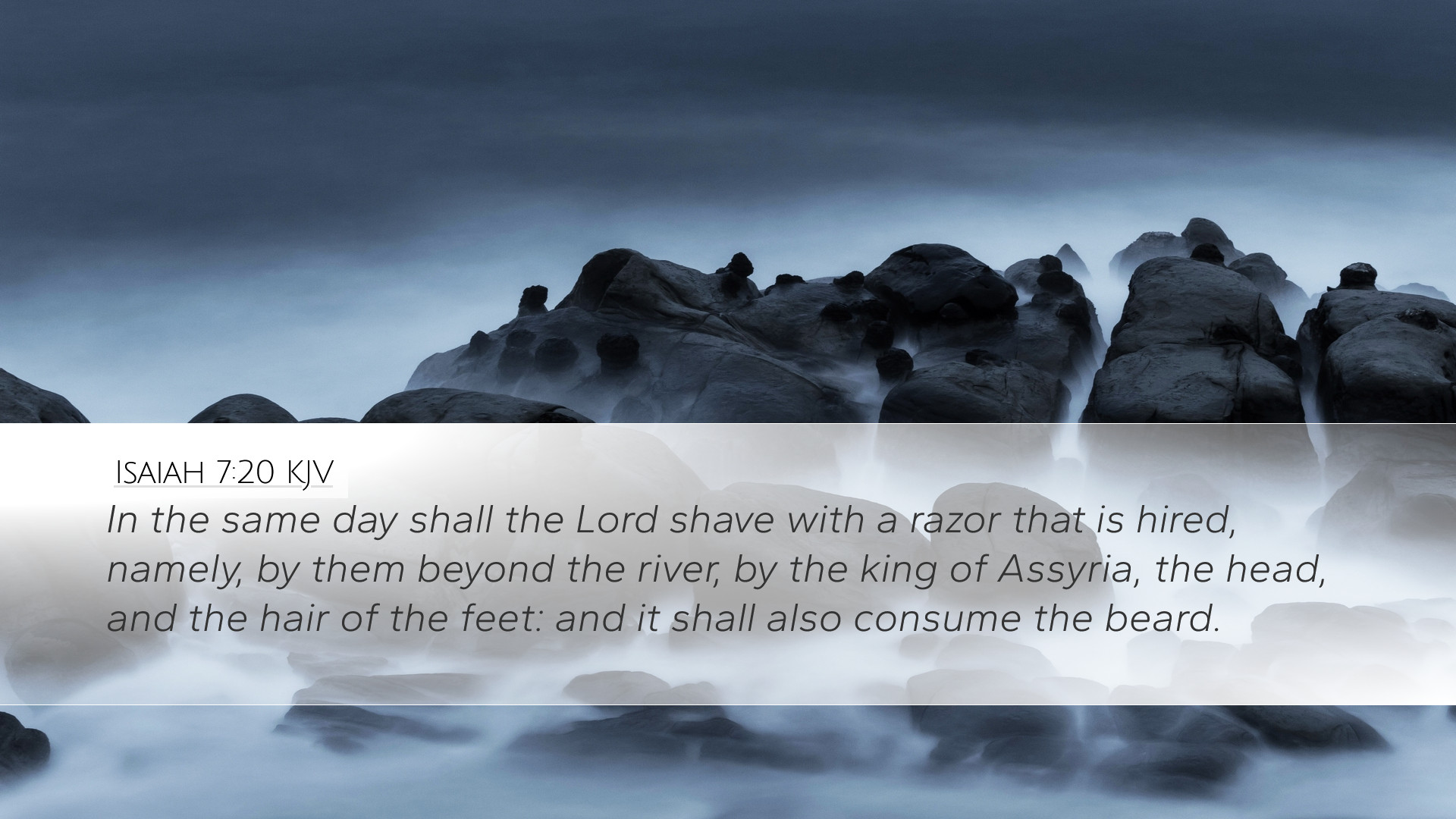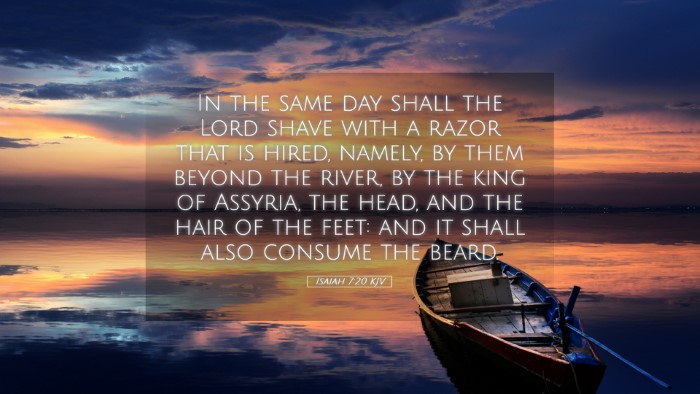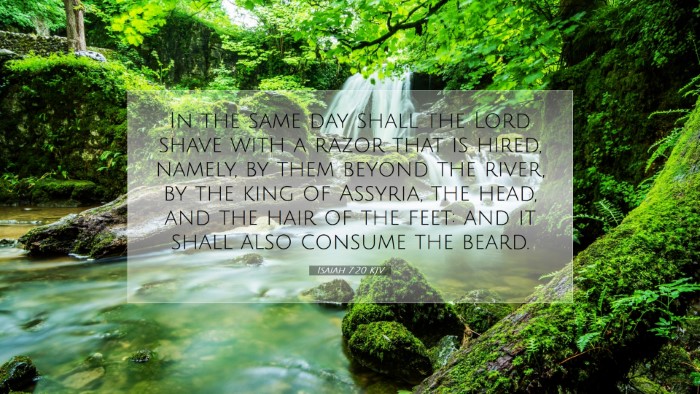Bible Commentary on Isaiah 7:20
Isaiah 7:20 (ESV): "In that day the Lord will shave with a razor that is hired beyond the River— with the king of Assyria—the head and the hair of the feet, and it will sweep away the beard also."
Introduction
Isaiah 7:20 presents a vivid metaphor that encapsulates a pivotal moment in the history of Israel. This verse serves as a declaration of God's judgment and a stark reminder of the consequences of turning away from divine guidance. To better understand its significance, we shall delve into insights from various public domain commentaries, weaving together the perspectives of Matthew Henry, Albert Barnes, and Adam Clarke.
Contextual Background
To comprehend Isaiah 7:20 fully, it is essential to look at the context in which it was spoken. The passage occurs during a time of political turmoil as King Ahaz of Judah faced threats from the northern kingdoms of Israel and Syria. The Assyrian Empire loomed large as a potential ally, albeit one fraught with its own dangers. Isaiah's message sheds light on the folly of relying on human alliances rather than trusting in God's promises.
Matthew Henry's Perspective
According to Matthew Henry, this verse highlights God's use of Assyria as an instrument of judgment against His people. Henry notes the imagery of shaving with a razor, which is a symbol of humiliation and servitude. He explains that the metaphor signifies how God would allow the Assyrians to strip away the dignity and strength of Judah, much like a barber strips away hair. This act is not merely physical but represents a deeper spiritual barrenness resulting from disobedience and a lack of faith.
Albert Barnes' Commentary
Albert Barnes emphasizes the symbolism of ‘the razor’ in Isaiah 7:20. He outlines that the razor symbolizes a foreign power that will dominate and oppress Judah. Barnes explicates that the phrase "beyond the River" likely refers to the Euphrates, positioning Assyria as a distant but dangerously potent force. The consequences of Judah’s reliance on such an alliance are dire, as God’s intention is to bring His people low, emphasizing their need for repentance and realignment with divine will.
Adam Clarke's Analysis
Adam Clarke provides a detailed reflection on the characterization of the king of Assyria as a "hired razor." He explains that this designation captures the essence of God's sovereignty even when employing foreign rulers for judgment. Clarke argues that although the Assyrians are likened to a hired instrument, it is ultimately God who wields the authority to shape the course of nations. He asserts that this divine action serves as a warning against misplaced trust and highlights the futility of relying on temporal power.
Theological Themes
- Divine Sovereignty: The portrayal of God manipulating nations underscores His absolute control over history.
- Judgment and Consequences: The shaving imagery conveys the concept of divine judgment, illustrating the consequences of turning from God's ways.
- Human Frailty and Trust: The reliance on nations signifies a broader theme of the human tendency to trust in worldly alliances rather than the invincible power of God.
Practical Implications
For pastors, students, and theologians, the message of Isaiah 7:20 is profoundly relevant. This passage invites a critical reflection on contemporary reliance on societal structures and political powers. It beckons believers to evaluate where their trust lies—whether in human ingenuity or divine providence. It serves as an admonition that the erosion of faith results in spiritual vulnerability.
Encouragement for Faith
Isaiah 7:20 encourages believers to root their faith not in what is seen, but in what is promised by God. As noted by Henry and Clarke, we must be vigilant against our susceptibility to worldly temptations. By recognizing God’s sovereignty, we cultivate a resilient faith that withstands the tests of adversity.
Conclusion
In conclusion, Isaiah 7:20 acts as a poignant reminder of the delicate interplay between divine judgment and human agency. Through the insights of Matthew Henry, Albert Barnes, and Adam Clarke, we grasp the weight of this prophetic declaration. As we contemplate this verse, let us strive to align our hearts with God’s purpose, avoiding the pitfalls of misplaced trust, and embracing the sovereignty of God as the ultimate source of strength and guidance.


